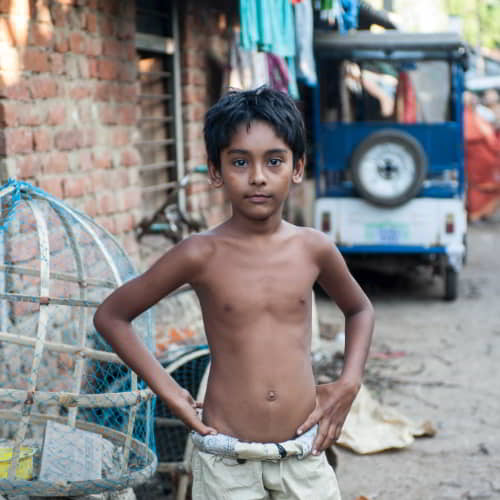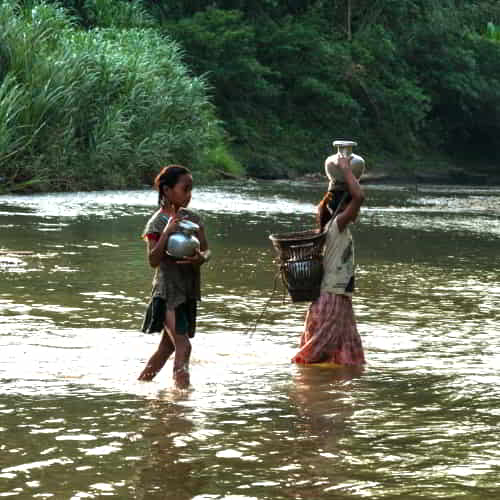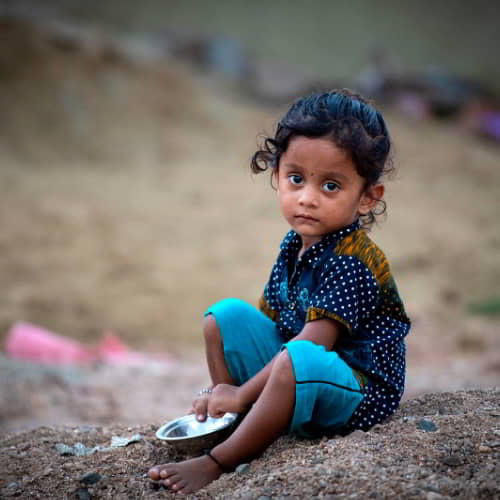Effects of Poverty on Child Development
Many organizations study the effects of poverty on child development, and in recent years there have been tremendous advancements to counter these impacts. According to UNICEF, “Children represent half of those struggling to survive on less than $1.90 a day.” About 1 billion children are multidimensionally poor, meaning they don’t have access to necessities like adequate food and clean water. Around the world, 356 million kids live in extreme poverty.[1]
The effects of poverty on child development are dire:
First, the effects of poverty on children impact their physical growth.
Starting in the womb, malnutrition of the mother can impact a baby’s development and health.[2] Once outside the womb, poverty continues to impact the child through hunger, lack of medical care, poor sanitation facilities and more. Children’s Bureau reports, “Poverty itself can negatively affect how the body and mind develop, and economic hardship can actually alter the fundamental structure of the child’s brain. Children who directly or indirectly experience risk factors associated with poverty have higher odds of experiencing poor health problems as adults, such as heart disease, hypertension, stroke, obesity, certain cancers, and even a shorter life expectancy.”[3]
Second, there are effects of poverty on education. It is very difficult for many parents to pay for education.
In some impoverished countries, public schools require tuition, making education unreachable for many. When school is offered for free, a family may not be able to afford required supplies, uniforms and other expenses, so they opt out of sending their children to be educated.
When children are able to attend school, there is a 90% chance that a child living in poverty will have one or more problems with speech, learning or emotional development.[4] This may be caused by malnutrition, lack of resources or other factors.
Another hindrance to education is that many children living in poverty are busy meeting the needs of the family. In areas where clean water is not accessible, children are often tasked with walking long distances during the day to collect water for their family. This makes it difficult to attend school. Another factor is child labor. Children are sometimes pulled from school and sent to work when a family cannot meet its financial obligations.
When a child’s situation seems hopeless, it affects them mentally.[5] Counseling or mental health assistance is rarely available since those around them are stuck in the same situations. Hopelessness is the norm.
Fourth, poverty impacts child mortality rates.
UNICEF reports, “Children from poor households die at twice the rate of their better-off peers.”[6]
Fifth, poverty impacts child development through the effects of poverty on society.
In countries with severe poverty, the cycle of poverty advances through generations. This impacts society and the economy in a variety of negative ways, resulting in, for instance, the lack of sanitation services, clean water and resources to help those in need.[7]
Click here, to read more about this article.
Click here, to read more blogs in Gospel for Asia.Net



Comments
Post a Comment